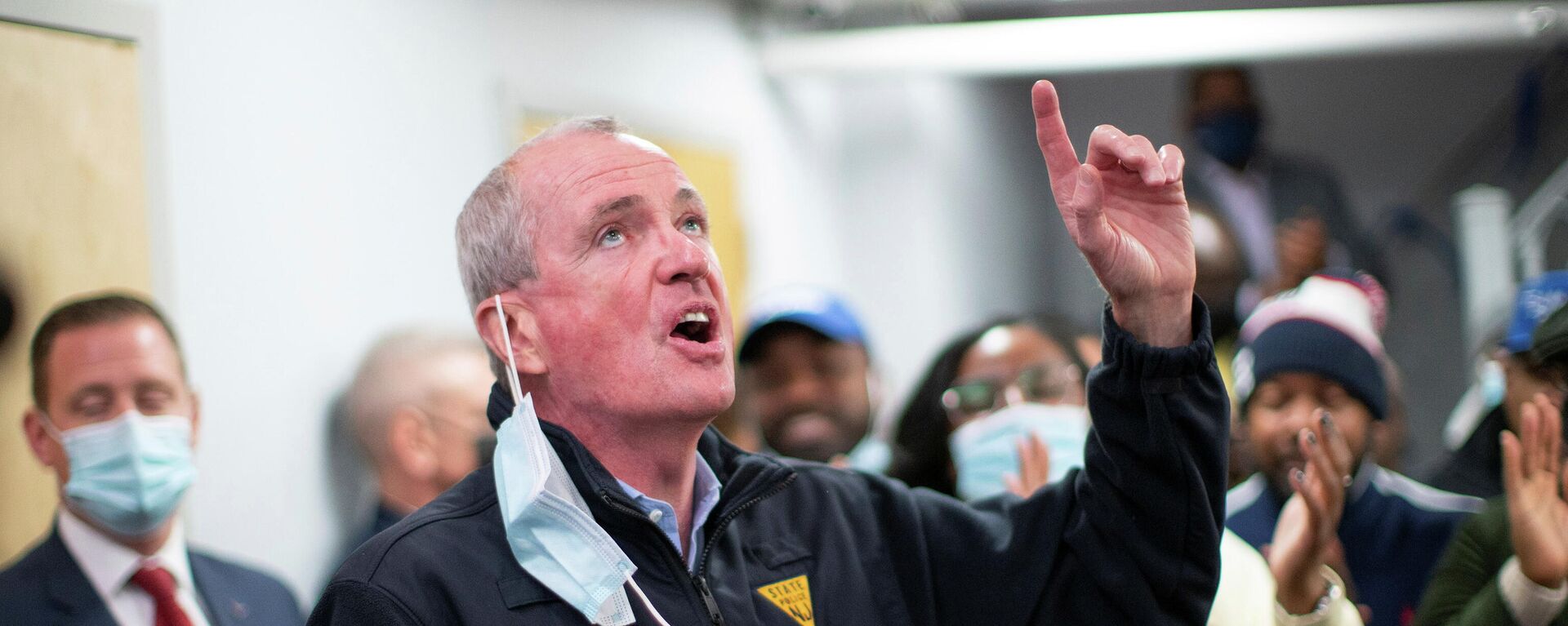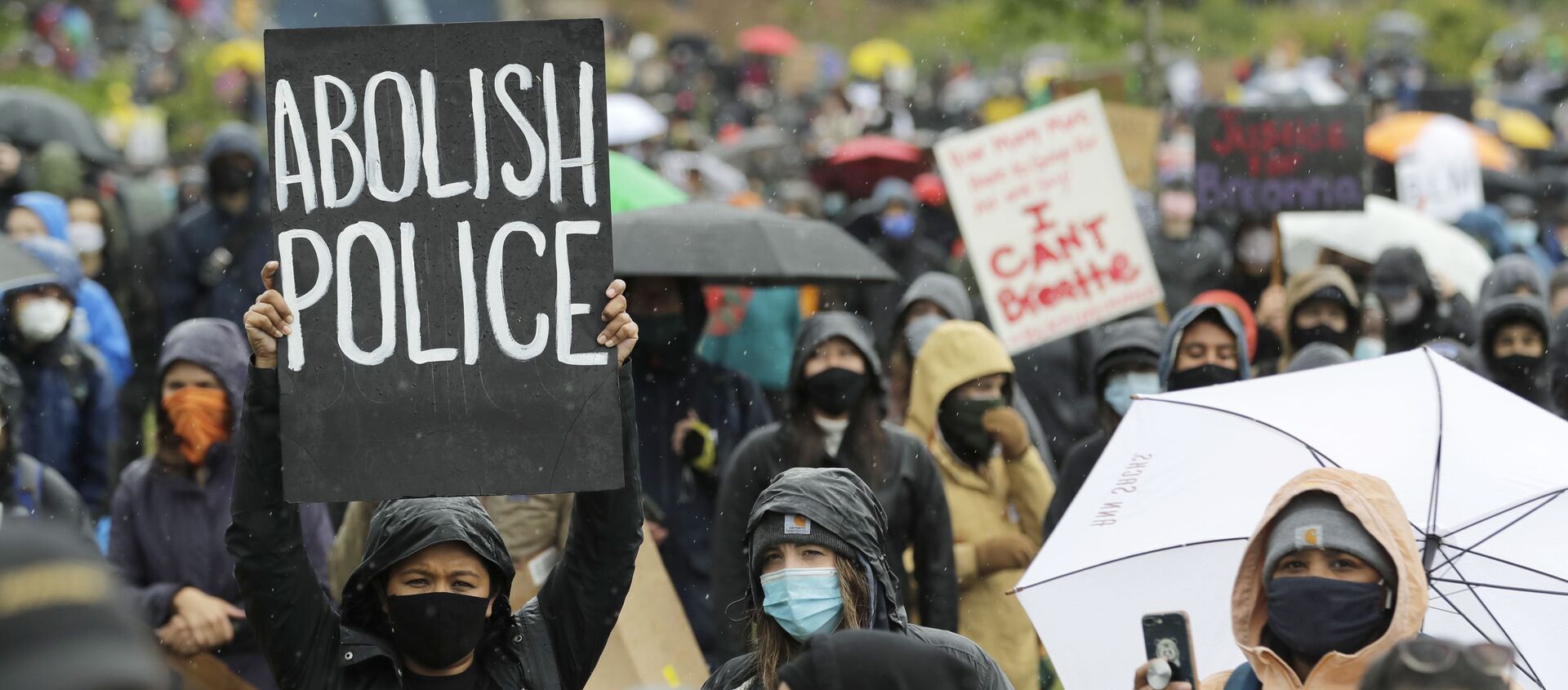https://sputnikglobe.com/20211103/political-waves-what-the-virginia-governor-race-means-for-the-democratic-agenda--1090460416.html
Political Waves: What the Virginia Governor Race Means for the Democratic Agenda
Political Waves: What the Virginia Governor Race Means for the Democratic Agenda
Sputnik International
Glenn Youngkin defeated incumbent Terry McAuliffe on Tuesday to secure the Virginia governorship, a move that has excited Republican candidates across the... 03.11.2021, Sputnik International
2021-11-03T23:25+0000
2021-11-03T23:25+0000
2022-12-19T14:00+0000
republicans
terry mcauliffe
us
democrats
https://cdn1.img.sputnikglobe.com/img/07e5/0a/0b/1089822440_0:200:3068:1926_1920x0_80_0_0_9307f0a39898d736876bc70cd2b779e9.jpg
Terry McAuliffe’s failure to secure the Virginia governorship was unexpected. In the 2020 presidential election, US President Joe Biden, then the Democratic candidate, won the state by 10 points. Now, only a year later, Democrats lost the governorship by 2.5 points. The question Democrats need to ask themselves is how did the Virginia GOP swing 12 points so quickly?According to a Washington Post-Schar School Poll, in the weeks leading up to the election, 53% of Virginians disapproved of Biden’s job performance, with 46% approving. The poll also uncovered that education topped the economy as the most important issue for voters.Glenn Youngkin was able to use mask mandates in schools and critical race theory, among other education-related grievances, to swing Virginia’s suburbs red enough to flip a state that has had a Democratic governor for 16 of the past 20 years.Democrats in Congress will take notice. Cultural issues can still lead to gains in the suburbs, and pushing more progressive policies could have major consequences in 2022.In the 2020 US presidential election, an estimated 4.3 million Virginians voted. In the 2021 gubernatorial election, 3.2 million people voted. McAuliffe sought to energize the Democratic base by comparing Youngkin to Donald Trump. The strategy did not pay off and Democratic organizers believe the party’s inability to pass legislation in Washington may be hurting Democrats at the state level.Adrianne Shropshire, the executive director of BlackPAC, said voters of color are disappointed that Democrats have not yet passed laws on issues including voting rights and criminal justice. “People don’t want to be gaslighted about what’s not happening and why, by being told that everything is great,” she said.Virginia wasn’t the only governor’s race this week. New Jersey’s gubernatorial race also saw a Republican candidate perform much better than expected, which George Washington University professor Gary Nordlinger believes is the more tell-tale sign.The Virginia and New Jersey gubernatorial election results are ringing alarm bells among Democrats in Washington and across the country. Their inability to pass legislation has left their base lethargic, their progressive members’ rhetoric is thought by some to be scaring off some swing suburban voters, and trying to make an election about Trump when he’s on the political sideline are all costly errors. A Democrat agenda will need to start producing results in order to avoid a political red wave.
https://sputnikglobe.com/20210727/how-critical-race-theory-may-cost-democrats-left-leaning--independent-votes-in-2022-midterms-1083470609.html
https://sputnikglobe.com/20211103/democratic-governor-phil-murphy-wins-re-election-in-new-jersey--1090459985.html
Sputnik International
feedback@sputniknews.com
+74956456601
MIA „Rossiya Segodnya“
2021
News
en_EN
Sputnik International
feedback@sputniknews.com
+74956456601
MIA „Rossiya Segodnya“
Sputnik International
feedback@sputniknews.com
+74956456601
MIA „Rossiya Segodnya“
republicans, terry mcauliffe, us, democrats
republicans, terry mcauliffe, us, democrats
Political Waves: What the Virginia Governor Race Means for the Democratic Agenda
23:25 GMT 03.11.2021 (Updated: 14:00 GMT 19.12.2022) Glenn Youngkin defeated incumbent Terry McAuliffe on Tuesday to secure the Virginia governorship, a move that has excited Republican candidates across the country. The win could have far-reaching consequences for the 2022 midterm elections and has sent a clear signal to Democrats in Washington.
Terry McAuliffe’s failure to secure the Virginia governorship was unexpected. In the 2020 presidential election, US President Joe Biden, then the Democratic candidate,
won the state by 10 points. Now, only a year later,
Democrats lost the governorship by 2.5 points.
The question Democrats need to ask themselves is how did the Virginia GOP swing 12 points so quickly?
According to a Washington Post-Schar School Poll, in the weeks leading up to the election, 53% of Virginians disapproved of Biden’s job performance, with 46% approving. The poll also uncovered that education topped the economy as the most important issue for voters.
Glenn Youngkin was able to use mask mandates in schools and critical race theory, among other education-related grievances, to swing Virginia’s suburbs red enough to flip a state that has had a Democratic governor for 16 of the past 20 years.
Democrats in Congress will take notice. Cultural issues can still lead to gains in the suburbs, and pushing more progressive policies could have major consequences in 2022.
Alex Keena, assistant professor at the Department of Political Science, Virginia Commonwealth University summed another issue that Dems should be concerned about: the turnout.
“For the Democrats, they chose a candidate who was unable to inspire Democratic voters to show up and vote, Keena said, adding that, “in some ways, this reflects national politics -- President Joe Biden has had trouble getting his agenda passed by Congress”
In the 2020 US presidential election, an estimated 4.3 million Virginians voted. In the 2021 gubernatorial election, 3.2 million people voted. McAuliffe sought to energize the Democratic base by comparing Youngkin to Donald Trump. The strategy did not pay off and Democratic organizers believe the party’s inability to pass legislation in Washington may be hurting Democrats at the state level.
Adrianne Shropshire, the executive director of BlackPAC,
said voters of color are disappointed that Democrats have not yet passed laws on issues including voting rights and criminal justice. “People don’t want to be gaslighted about what’s not happening and why, by being told that everything is great,” she said.
“Among Democrats, there is disappointment that President Biden has not been able to deliver on some of his campaign promises, due to infighting among the Democratic Party in the US Congress," Keena added.
Virginia wasn’t the only governor’s race this week. New Jersey’s gubernatorial race also saw a Republican candidate perform much better than expected, which George Washington University professor Gary Nordlinger believes is the more tell-tale sign.
Nordlinger wrote through email, “The bigger shock is New Jersey. Polling showed a tie between the candidates in Virginia. However, while polling showed the race was tightening in New Jersey, it was still a 5% (or so) margin for Democratic Gov. Murphy in New Jersey.” The New Jersey race was narrowly won by incumbent Democratic Governor Phil Murphy on Wednesday.

3 November 2021, 22:29 GMT
The Virginia and New Jersey gubernatorial election results are ringing alarm bells among Democrats in Washington and across the country. Their inability to pass legislation has left their base lethargic, their progressive members’ rhetoric is thought by some to be scaring off some swing suburban voters, and trying to make an election about Trump when he’s on the political sideline are all costly errors.
A Democrat agenda will need to start producing results in order to avoid a political red wave.



